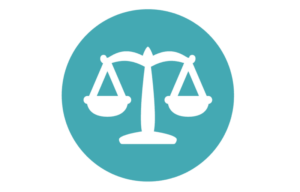The Philadelphia law firm Blank Rome has formed a new team that will focus exclusively on biometric privacy issues. The team will consist of seven lawyers, four of whom are partners and all of whom will operate under the guidance of chair Jeffrey Rosenthal.

Blank Rome formed the new team to meet the growing need for biometric privacy experts. As fingerprint scanners, facial recognition, and other technologies become more common, state and federal lawmakers have responded with legislation that protects the privacy of civilians. Corporate entities are wary of running afoul of those laws, and are seeking out legal advice to make sure that their policies are compliant before they get hit with an expensive lawsuit.
At the moment, Texas, Washington, and Illinois are the only states with dedicated biometric privacy laws. However, other states (including California) touch on biometric technology in broader privacy legislation, and the Illinois Biometric Information Privacy Act (BIPA) has been used to bring class action lawsuits against companies that are headquartered elsewhere but still do business in the state. For example, Facebook recently agreed to pay a $650 million settlement for collecting people’s facial information without obtaining the proper consent.
Blank Rome has provided clients with biometric privacy advice in the past, but believes that a piecemeal approach is no longer sufficient to deal with the volume of requests. The firm noted that biometric privacy law touches on multiple legal disciplines, which is why the team has experience in cybersecurity, AI, class action defense, and labor and employment law.
While Blank Rome is not the first law firm to devote resources to biometric privacy, it is one of the first to do so outside of the state of Illinois. The Chicago-based Hahn Loeser & Parks established a Biometric Privacy Practice Group in March of 2019, while Shook, Hardy, and Bacon added two biometric specialists the month prior. It is likely that other law firms will follow suit as biometric privacy legislation becomes more complicated in the years ahead.
Source: Westlaw Today
–
September 17, 2020 – by Eric Weiss






Follow Us